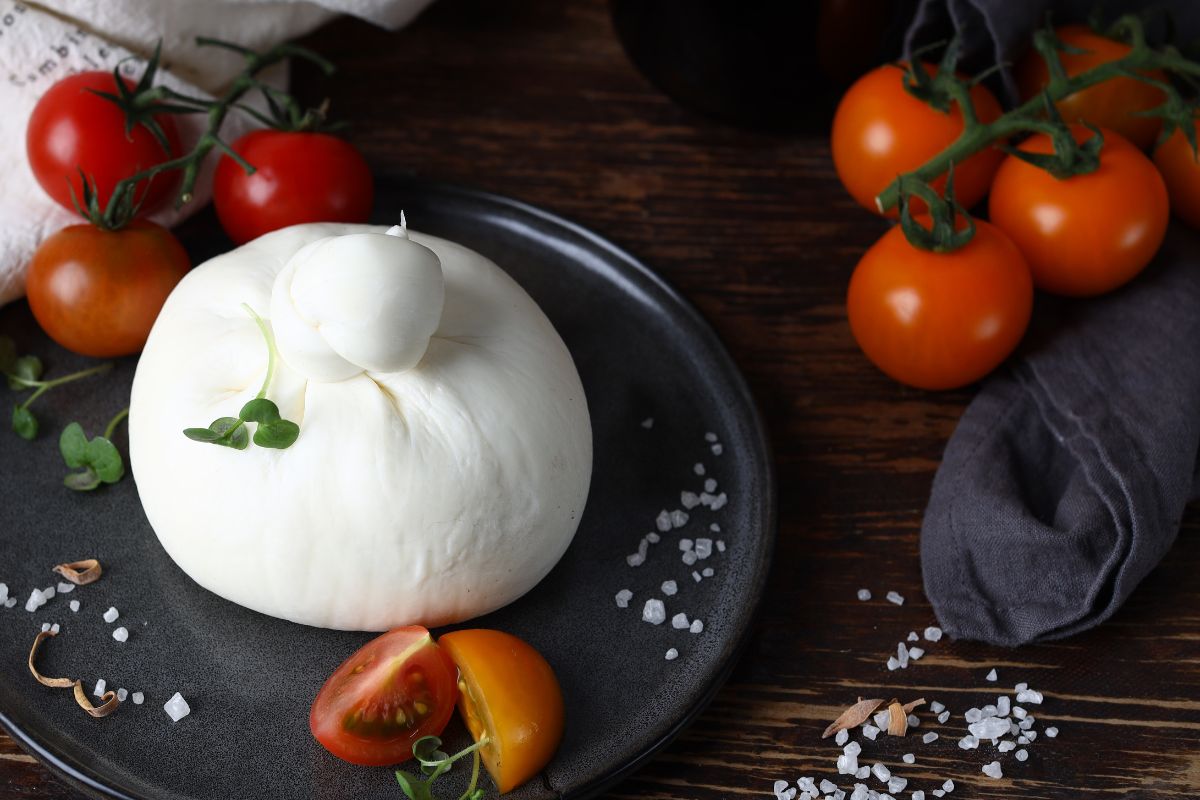Enjoying burrata during pregnancy is generally safe as long as it is made from pasteurized milk. Burrata can provide essential nutrients such as protein and calcium, and it can also be a delicious treat for expectant mothers. However, it’s crucial to check the label or inquire with the cheese provider to ensure that the burrata you consume is safe during pregnancy. If you’re unsure about the source or it’s homemade, it’s best to avoid it to minimize any potential risks. As with any food during pregnancy, it’s always advisable to consult with your healthcare provider for personalized advice.
What is Burrata?
Burrata is a type of Italian cheese that is known for its creamy and indulgent texture. It is made from mozzarella and cream, giving it a rich and luscious flavor. The outer shell of burrata is made from mozzarella, while the inside is filled with a combination of mozzarella and cream. When cut open, the creamy center oozes out, making it a delightful treat for cheese lovers.
Nutritional Value of Burrata
Burrata is not only delicious but also packed with nutrients that can be beneficial during pregnancy. It is a good source of protein, which is essential for the growth and development of your baby. Additionally, burrata contains calcium, which is crucial for the development of your baby’s bones and teeth. It also provides vitamins such as vitamin A, vitamin B12, and vitamin D, which are important for both you and your baby’s health.
Is Burrata Safe to Eat During Pregnancy?
When it comes to the safety of burrata during pregnancy, the key factor to consider is whether the cheese is made from pasteurized milk. Pasteurization is a process that involves heating the milk to kill harmful bacteria, such as Listeria. Most commercially available burrata is made with pasteurized milk, which eliminates the risk of Listeria contamination.
However, it’s crucial to check the label or inquire with the cheese provider to ensure that the burrata you’re consuming is made from pasteurized milk. This precaution is important because some artisanal or homemade burrata may still be made with unpasteurized milk, which can pose potential risks during pregnancy.
Benefits of Eating Burrata During Pregnancy
If you are able to confirm that the burrata you’re consuming is made from pasteurized milk, there are several benefits to enjoy. As mentioned earlier, burrata is a good source of protein and calcium, which are essential nutrients during pregnancy. Protein helps in the development of your baby’s muscles, organs, and tissues, while calcium supports the growth of their bones and teeth.
In addition to its nutritional benefits, burrata can also be a great source of pleasure and satisfaction during pregnancy. Pregnancy can come with cravings and mood swings, and indulging in a bowl of creamy burrata can be a comforting and enjoyable experience.
Risks of Eating Burrata During Pregnancy
While most commercially available burrata is safe to consume during pregnancy, there are still some risks to be aware of. As mentioned earlier, artisanal or homemade burrata may be made with unpasteurized milk, which can increase the risk of Listeria contamination. Listeria is a type of bacteria that can cause food poisoning and can be especially dangerous for pregnant women, as it can lead to miscarriage, stillbirth, or severe illness in the newborn.
To minimize the risks, it’s crucial to ensure that the burrata you consume is made from pasteurized milk. If you’re unsure about the source of the burrata or if it’s homemade, it’s best to avoid it during pregnancy to err on the side of caution.
How to Safely Consume Burrata During Pregnancy
If you’re a burrata lover and want to enjoy it during pregnancy, there are steps you can take to ensure its safety. Firstly, always read the label and check if the burrata is made from pasteurized milk. If the label doesn’t provide this information, you can inquire with the cheese provider directly.
Secondly, make sure to store the burrata properly. Keep it refrigerated at or below 40°F (4°C) and consume it within the recommended time frame. Avoid consuming burrata that has been left out at room temperature for an extended period, as it can increase the risk of bacterial growth.
Lastly, when serving burrata, make sure to use clean utensils, plates, and cutting boards to avoid cross-contamination with other potentially harmful bacteria.
Alternatives to Burrata During Pregnancy
If you’re unable to find burrata made from pasteurized milk or prefer to avoid it altogether during pregnancy, there are alternative cheeses you can enjoy. Opt for cheeses that are made from pasteurized milk, such as pasteurized mozzarella or pasteurized ricotta. These cheeses have a similar texture and can be used in various recipes as a substitute for burrata.
Recipes Using Burrata for Pregnant Women
If you’re confident in the safety of the burrata you have, here are a few delightful recipes you can try during your pregnancy:
- Burrata Caprese Salad: Combine slices of ripe tomatoes, fresh basil leaves, and burrata cheese. Drizzle with olive oil and balsamic glaze for a refreshing and nutritious salad.
- Grilled Burrata Sandwich: Grill slices of sourdough bread and layer them with grilled vegetables, such as zucchini and eggplant. Add a generous portion of burrata and grill until the cheese is melted and gooey.
- Burrata Pasta: Cook your favorite pasta and toss it with a creamy burrata sauce. Add sautéed vegetables or cooked chicken for a more substantial meal.
Remember to follow the safety guidelines mentioned earlier and enjoy these recipes in moderation.
Consult Your Healthcare Provider for Personalized Advice
While this article provides general information about the safety of consuming burrata during pregnancy, it’s important to consult with your healthcare provider for personalized advice. They will consider your specific health condition and provide guidance tailored to your needs.

